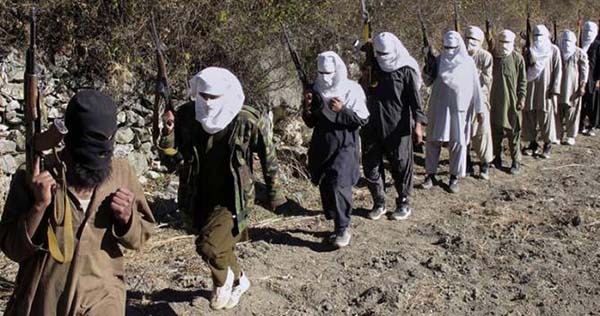Two sisters, who dreamt of becoming doctors, lost their lives on the way to school and took their wishes to the grave with them. A suicide bombing occurred last Sunday on Hawashenasi road in Kabul left three dead and 20 wounded. Nargis and Yasemin, the daughters of a vegetable seller, were also among the victims. “They had many hopes; they used to attend after school classes and wanted to become doctors in the future,” said a neighbor of them.
Afghan parliamentarians raised serious concerns about mounting insecurity in the capital as well as elsewhere in the country. A member of Wolesi Jirga from Nimbroz province, Freshta Amini, stated that worsening security conditions are the result of a lack of coherent strategy. “One of the reasons that the security is getting worse day-by-day is the absence of security programs,” she said.
In the recent spate of Kabul attacks, over 20 people have lost their lives and almost 40 others were wounded. The assault on the Kabul Park Palace guesthouse led to the deaths of 14 and wounding of several others. Last week, an explosion in the Kabul University campus left two professors wounded. Then, a bomb blast in the Kart-e-Naw neighborhood was followed by the explosion on Hawashenasi road – local news report.
The death toll among the civilians is on rise as a result of the Taliban’s spring offensive. People are victimized indiscriminately by the militants operating under the white banner of the Taliban or black banner of the Islamic State (IS). Since their attempts to impose their beliefs at the point of gun proved abortive, they have embarked on stronger attacks to wreck further havoc on the country’s political and economic structures.
The mounting insurgency puts the effect of the Bilateral Security Agreement (BSA) under question. Afghan people hoped that signing BSA would be a panacea for the political challenges and play a key role in stabilizing the country. Therefore, more than 50 per cent of the population agreed with it.
To the public’s unmitigated chagrin, the security situation was aggravated soon after signing the Agreement and it seemed to be counterproductive. The graph of civilian and police casualties began to rise. The Taliban, who were supposed to decrease their attacks with the withdrawal of foreign forces for being against their presence in the country, launched spring offensive with puissant force. Hence, I believe that a wall of mistrust grows higher between Afghan citizens and foreign forces for observing no achievement, regarding the security situation, after the agreement.
Since the country is knee-deep in political and economic quagmire, people want a whole can of worms to be kicked as soon as possible. They are highly exhausted with unemployment, violence and bloodshed. A workman, a vendor or a taxi-driver, worries not only about making the ends meet but also if they return home safely. Similarly, parents are worried about their children to be back from schools safely.
However, some schoolchildren take their wishes to the grave with them as Nargis and Yasemin. Likewise, a number of street vendors, who are the only bread-winners of their families, lose their lives in suicide bombings and leave their families with no one to feed them.
Afghan women still remains the vulnerable part of the society. As it was mentioned previously, school girls lose their lives on the way to school, the female politicians are targeted by the militants, and some are restricted in traditional barriers.
The international community said the fall of the Taliban in 2001 would bring in a new era of rights. Afghanistan’s women and girls would be returned to schools and workplaces and freed from the infamously fierce restrictions on their lives. It was a key political justification used by the British and Americans for their continued presence. That year US secretary of state Colin Powell declared that restoring women’s human rights would “not be negotiable”. Former British Prime Minister Tony Blair promised: “The conflict will not be the end. We will not walk away, as the outside world has done so many times before.” Now, with the withdrawal of international forces and their caravan of international agencies, there is evidence that Afghan women have seen very few of the promised changes and are terrified of the future. They fear to experience the dictatorial regime of the Taliban once more.
Since 2001 the country has received some £60bn of aid; there have been tangible improvements in education, maternal mortality, employment, and the representation of women in governance. But there are signs that those gains are too fragile.
The return of 2.2 million girls to school after 2001 was considered the international community’s great triumph, but in the past few years schools have been closing behind the withdrawal of foreign forces. There have been reports of schoolgirls poisoned, beaten and killed and head-teachers assassinated and classrooms firebombed.
The counterterrorism strategy did not bear the desired fruit in Afghanistan – almost the same as Iraq – albeit BSA was signed by Afghan government. The foreign aids such as financial and military investments are waning, as insurgency looms large once more. If this trend continues unabated, Afghan people will lose their morale more than ever before. So, a stronger counterterrorism strategy is needed to be launched to prevent f civilian casualties and let the citizens breathe a sigh of relief under the democratic government.

